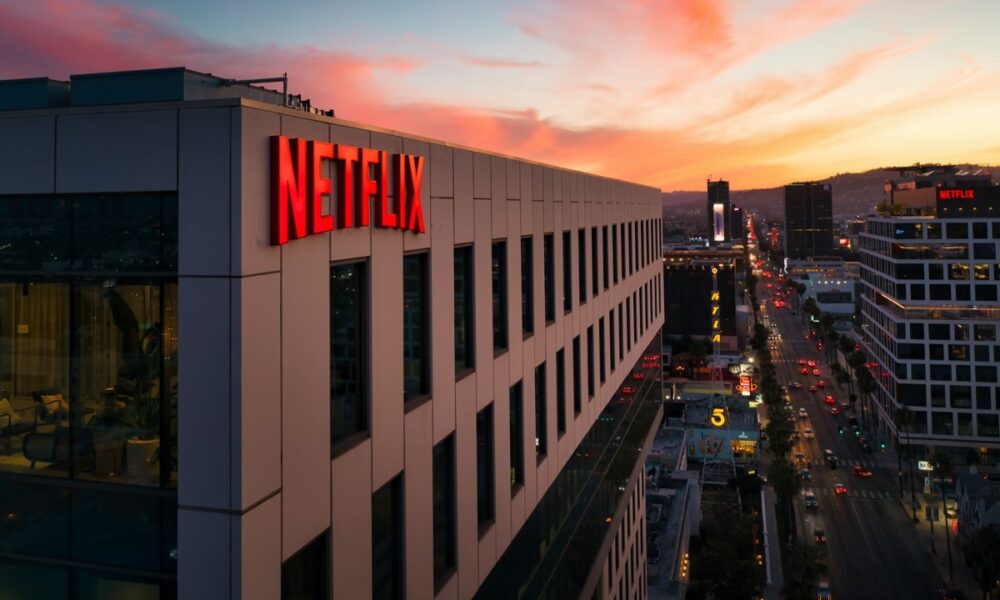Netflix says size doesn’t matter
- May 28, 2024
- 0
Everyone defends their own, of course, if we read an interview with Ted Sarandos, co-founder of Netflix along with a (somewhat) more media-friendly Reed Hastings like the one
Everyone defends their own, of course, if we read an interview with Ted Sarandos, co-founder of Netflix along with a (somewhat) more media-friendly Reed Hastings like the one

Everyone defends their own, of course, if we read an interview with Ted Sarandos, co-founder of Netflix along with a (somewhat) more media-friendly Reed Hastings like the one recently published by The New York Times, we can (and should) expect a pretty friendly read of what the platform has to offer. Obviously, it’s up to the questioner to try to use the language a little less or a little more, and in this case I’d say it’s a good job and that Sarandos’ answers are interesting.
One of the talking points, an important point, is the current situation of cinema in commercial theatresyou know, the habit boom moving to a specific location, paying an amount between 8 and 20 euros (or even a little more in some luxury rooms), accessing a more or less huge room, waiting for the lights to go out, swallowing five or ten minutes of advertising and finally enjoying an immersive experience , which comes with watching a movie on a screen that’s a billion square meters in size and a sound system almost, almost as immersive as the popcorn crunch of the guy sitting two rows back.
I know from what I just said it might seem like I don’t like going to the movies, but in truth, the opposite is true, I love it. Of course, whenever possible, I try to go to sessions that start at 11:30pm or 12:00am, early in the morning, basically because of the wonderful feeling of having the room practically to yourself. Which, on the other hand, is something that streaming services like Netflix and co already give me.

The fact is that the two big box office hits of last year, Barbie and Oppenheimer, are mentioned at some point in the interview I’m referring to, and I think it’s best to reproduce verbatim (albeit translated) that part of the interview:
The New York Times: I’m thinking about Barbie and Oppenheimer. Are there things that just seem out of your reach?
Ted Sarandos: Both movies would be great for Netflix. They would definitely enjoy an equally large audience on Netflix. Therefore, I think there is no reason to believe that certain types of movies work or don’t work. There is no reason to believe that the film itself is better on any screen size for all people. My son is an editor. He is 28 years old and has been watching “Lawrence of Arabia” on his phone.
Which brings me to the statement I opened this post with, Netflix doesn’t care about size, thinking that square inches or meters are irrelevant about the film’s success (or failure) and feels that both films would have been equally successful had they been released on their platform instead of in theaters. A somewhat bold statement, but one that may actually have more meaning than meets the eye.
We can assume that Christopher Nolan won’t think the same, and that someone watching his movies on a smartphone screen can probably take that as a personal insult, because you know he always shoots his movies in IMAX. Although in this regard I highly recommend this video from one of my favorite distribution channels, Escafandra Visión.
As I mentioned before, Personally, I like a “pure” movie theater experience., large screen, booming sound, isolation from the rest of the world, etc. However, it is true that these new platforms provide a model that, if we are willing to give up these features, is the most comfortable and convenient. Plus, the migration of talent from traditional studios to new platforms allows them to offer ever more remarkable content in the face of a film industry that is becoming less risky and, in my opinion, more boring every day. With clear exceptions, of course.
So what do we make of the Netflix executive’s words? At first they may seem biased, and of course there is some of that, but when we give them some thought, maybe they are not so far from realityeven if they don’t have as much to do with screen size (we have ever-bigger TVs at home, which is a sign that it matters) as the pros and cons of streaming platforms versus the cinema, the cinema hasn’t had a clear winner for some time.
Source: Muy Computer
Donald Salinas is an experienced automobile journalist and writer for Div Bracket. He brings his readers the latest news and developments from the world of automobiles, offering a unique and knowledgeable perspective on the latest trends and innovations in the automotive industry.